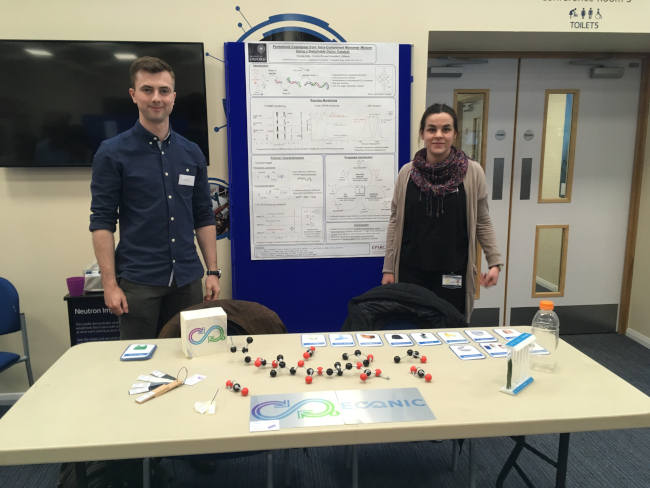
Well-defined block copolymers are a synthetic target in polymer chemistry. Most of these materials are made by stepwise approaches, such as sequential monomer addition or end group modification. However, random incorporation of monomers is obtained if all monomers are used at once and not added sequentially. Recently, they have developed a new approach to these materials based on a chemoselective one-pot combination of ring-opening copolymerisation (ROCOP) and ring-opening polymerisation (ROP). Through the application of ‘switch catalysis’, developed in the Williams group, ROCOP process of epoxide and CO2 or anhydride can be combined with the ROP of a lactone to form ABA-type block copolymers using a dinuclear catalyst. The selective process affords polymers with controllable molar masses and enables access to high molar mass samples. By varying the epoxide to lactone feed ratio, materials ranging from hardened, ductile plastics to elastic, pressure-sensitive adhesives can be obtained. These results showcase the versatility of the switchable catalytic process and the resulting triblock polymers as useful and functional materials.




